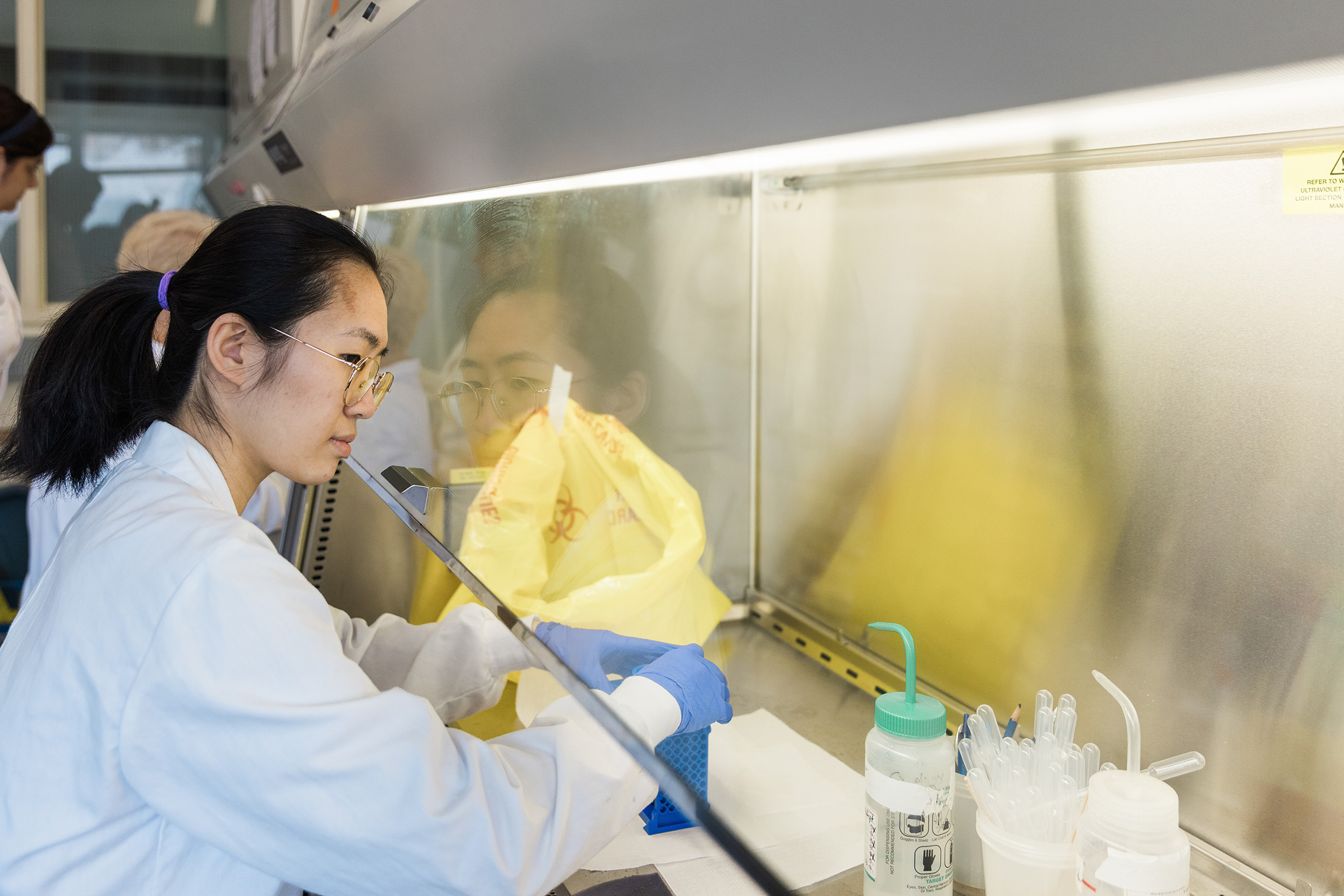About the Profession
Cytotechnologists play a crucial role in the fight against cancer by analyzing human cells under a microscope or through digital imaging. They detect and diagnose cellular changes from various sources — including Pap smears, lung, bladder, breast, gastrointestinal tract, head and neck, lymph nodes, thyroid gland and other body sites. Using standardized reporting terminology, they prepare detailed reports on abnormal findings to assist pathologists in making definitive diagnoses.
Histotechnologists are instrumental in acquiring and preparing specimens using a variety of histotechniques. Their work not only aids in disease diagnosis but also guides the need for further ancillary testing.
After successfully completing the national certification exam, our graduates are licensed to work across various areas of anatomical pathology, including surgical pathology, histopathology and cytopathology. Graduates also possess the fundamental knowledge and transferable skills to work in specialized fields such as electron microscopy, flow cytometry and molecular diagnostics — with additional training.
Most cytotechnologists and histotechnologists work in hospitals or community laboratories, but career paths extend to laboratory management, research, education, sales and marketing and technical consulting. As a vital member of the healthcare team, you will contribute to the diagnosis and treatment of diseases and engage in interprofessional collaboration with other health professionals to deliver high-quality patient care.
About the Program
Join the fight against cancer and become an integral member of a healthcare team. Graduates of the Diagnostic Cytology program earn dual licensure in both cytology and histology:
- Cytology develops the skills to identify and diagnose precancerous cellular changes, various types of cancer, and clinically significant infections
- Histology provides knowledge and practical skills in grossing, tissue processing, embedding, microtomy and staining techniques
Both disciplines are designed to equip students for diverse roles in the field of laboratory diagnostics.
Michener offers one of the only Diagnostic Cytology programs in Canada. Graduates are eligible to write the national certification examination conducted by the Canadian Alliance of Medical Laboratory Professionals Regulators (CAMLPR). Successful completion qualifies the graduate to seek employment across Canada — those wishing to practise in Ontario must also register with the College of Medical Laboratory Technologists of Ontario (CMLTO).
The Diagnostic Cytology program is accredited by Accreditation Canada. Accreditation is a quality improvement process that ensures educational programs meet national standards and that students acquire the knowledge, skills and competencies for safe and effective care at entry to practice.
Curriculum - Diagnostic Cytology
| Year | Semester | Course Code | Course Title |
|---|---|---|---|
| 1 | Fall | GYCY113 | Gynecologic Cytology |
| 1 | Fall | MDCY110 | Molecular Theory |
| 1 | Fall | MHCY112 | Microanatomy and Histotechnique 1 |
| 1 | Fall | PGCY112 | Pathology 1 |
| 1 | Winter | BAIP125 | Foundations of Interprofessional Collaboration for Medical Laboratory Technology Programs |
| 1 | Winter | MDCY120 | Molecular Diagnostics |
| 1 | Winter | MHCY122 | Microanatomy and Histotechnique 2 |
| 1 | Winter | NGCY122 | Non-gynecologic Cytology |
| 1 | Winter | PGCY122 | Pathology 2 |
| 2 | Summer | CLCY132 | Clinical Education 1 |
| 2 | Fall | CLCY242 | Clinical Education 2 |
The Diagnostic Cytology program harmonizes a mixture of theoretical concepts with practical application guided by fantastic instructors.

